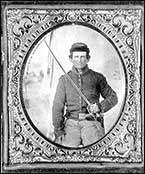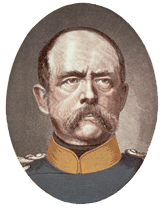
1636 Plymouth enacts first pension law for colonists injured while fighting Indians.
1776 During Revolutionary War, US promises annuities to generals, war heroes, and those disabled in battle, in part to curtail desertions in future wars.
1862 Civil War leads to first full-fledged pension system for war vets.

1875 American Express Company debuts private pension plan.
1889 German chancellor Otto von Bismarck institutes first national pension system.

1893-1897 Railroad bubble bursts. More than 1,000 US banks fail following the Panic of 1893.
1919 About 15 percent of total workforce and 75 percent of railroad workers covered by a pension plan.
1929-1934 Number of pensioners skyrockets as employers force workers into retirement during Depression. 1 in 5 companies limits pension benefits or gets rid of them altogether.
1934 Average monthly pension is $14.34.
1935 Social Security created; designed to pay maximum $30/month.
1940 Ida May Fuller, a 65-year-old legal secretary, receives the first Social Security check—$22.54.

1945 12 percent of workers covered by employer-based pensions.
1949 Supreme Court upholds National Labor Relations Board ruling that benefits are part of wages and must be included in union negotiations.
1950 General Motors creates pension scheme that includes equity investments—a precursor to 401(k).
1960 41 percent of workers covered by employer-based pensions.
1964 Studebaker auto plant in South Bend, Indiana, shuts down as company collapses; 2,900 workers’ benefits wiped out in first major pension meltdown.

1965 Medicare established—after universal health care is beaten back by American Medical Association.
1974 Employee Retirement Income Security Act (erisa) establishes Pension Benefit Guaranty Corporation (pbgc) to protect pensioners if their company fails.
1978 Bankruptcy code revised to let companies evade pension liabilities when they go Ch. 11. More than 3,600 firms will use this “pension dumping” loophole over next 30 years.
1980 Pennsylvania consultant Ted Benna has epiphany: Section 401(k) of tax code can be used to create tax-deferred retirement savings accounts with both employers and workers contributing.
1981 irs rules that employers can stop contributing to pbgc if they set up a 401(k).
1983 12 percent of workers have 401(k)s and other “defined contribution” plans.
1986 Congress replaces federal workers’ pension plan with a less generous pension plus a 401(k).
1994 Poll by conservative foundation Third Millennium suggests young Americans are more likely to believe in ufos than to think Social Security will be there for them. Poll later found to be skewed; stat repeated ad nauseam nonetheless.

1996 Congress eliminates Social Security eligibility for most noncitizens.
1997 Clinton’s Advisory Council on Social Security announces that program “will not be there” unless big reforms are made.
2000 Companies put in less than half the money for workers’ retirement funds, down from 92 percent in 1975.
During presidential debates, Al Gore says Social Security should be kept “in a lockbox”—at least 7 times.

Fortune picks Enron as year’s “best-managed” and “most innovative” company.
2001-2002 As Enron and Worldcom, etc., collapse, more than 68,000 laid-off workers lose their 401(k) savings, much of which execs had put in company stock.
2003 House passes law requiring mutual funds to “disclose” fee structures; dies in Senate.

New York attorney general Eliot Spitzer exposes mutual fund scandal, showing trading collusion by funds and investment banks; funds and banks pay $3.4 billion in settlements.
2004 Claims from workers with failed pension plans skyrocket, leaving the pbgc with a $23 billion deficit; Congress bumps up employers’ premiums for fund, driving more to abandon pension plans altogether.
2005 US Airways and United terminate most of their pension plans.
In State of the Union, Bush says Social Security “headed toward bankruptcy,” calls for privatization. Goes nowhere.

2008 First baby boomers turn 62.
Social Security reports $79 billion surplus.
2009 401(k) accounts lose an average of 25 percent.
Bush tells Weekly Standard‘s Fred Barnes that Social Security privatization attempt was his greatest underappreciated domestic policy accomplishment.







